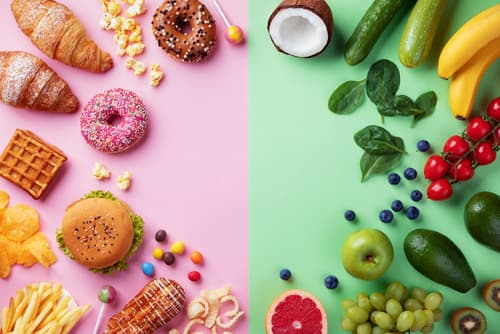
Craving Comfort: Junk Food Addiction in Women
Junk food—it's tantalising, easily accessible, and often provides a momentary sense of comfort. While occasional indulgence isn't a problem, some women find themselves trapped in a cycle of junk food addiction that can have a significant impact on their mental and physical health.
Junk food can trigger the brain's pleasure centre, flooding it with feel-good chemicals like dopamine. This creates a rewarding sensation that can become addictive. Women, more than men, often turn to food to cope with emotions like stress, anxiety, or sadness.
Junk food can provide temporary relief and comfort, which reinforces the desire to indulge repeatedly. Like any addiction, junk food can lead to cravings and withdrawal symptoms when trying to cut back, so it becomes difficult to break free from the cycle. Mood swings can follow, with highs and lows driven by sugar and processed ingredients. Diets high in processed foods are associated with a higher risk of anxiety and depression possibly due to constant fluctuations in blood sugar levels Struggles with junk food addiction can lead to feelings of guilt and shame, which can negatively impact self-esteem and self-worth.
How can you Break the Cycle?
1. Recognise Triggers: Identify the emotional triggers that lead to junk food cravings. Understanding why you reach for unhealthy snacks can help you address the root causes.
2. Healthy Alternatives: Replace junk food with healthier options like fruits, vegetables, and whole grains.
3. Mindful Eating: Practice mindful eating to savour and appreciate your food fully. This can help break the cycle of impulsive junk food consumption.
4. Seek Support: Reach out to friends, family or a therapist for emotional support. Talking about your struggles can provide relief and help you find healthier coping mechanisms.
5. Regular Exercise: Physical activity is not only good for your body but also your mind. Regular exercise can reduce stress, boost mood and help you manage cravings.
6. Professional Help: If junk food addiction is severely affecting your mental health, consider seeking professional help from a therapist or counsellor who specialises in food addiction and emotional eating.
Remember that overcoming junk food addiction is a journey that requires patience and self-compassion. By addressing the connection between junk food addiction and mental health and taking steps to break the cycle, women can reclaim their emotional well-being and build healthier relationships with food.
Note: The content in this blog is for informational and educational purposes only and is not intended as a substitute for professional medical advice, diagnosis, or treatment. Always seek the advice of your doctor or qualified healthcare provider with any questions you may have regarding a medical condition or treatment.


